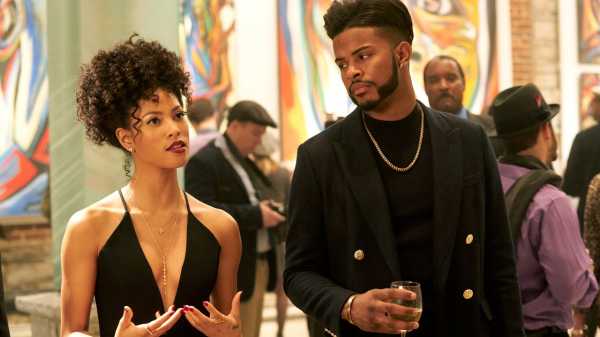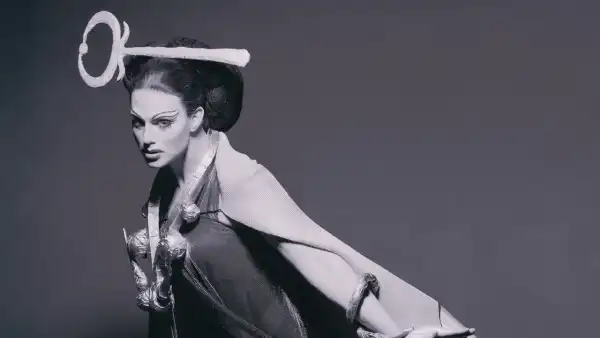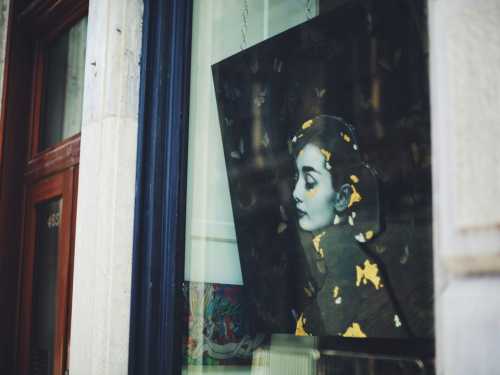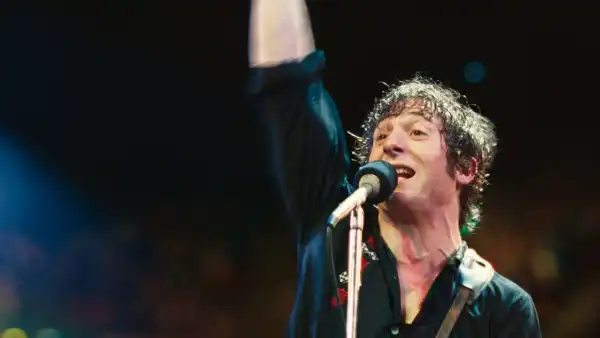
“Superfly” (one word) the remake and the original “Super Fly” (two words, from 1972) are in many respects similar. Both movies tell the story of Youngblood Priest, a coke dealer looking to make one last big score and then get out. (He’s played in the earlier film by Ron O’Neal; in the remake, by Trevor Jackson.) Both depict a criminal with peaceful dreams, who took to crime in lieu of the kind of legal business from which circumstances excluded him. Both allude to the endemic racism that’s rooted deep in American power, and both movies link racism to official corruption. But the experience of watching these movies is very different—as different as night and day.
The earlier film takes place mainly in daylight, on the streets of New York, which its director, Gordon Parks, Jr., approaches with a vitally textured, documentary-like range and avidity. The remake, by Director X, is set in Atlanta, and the night life and its artificial light (as well as an emphasis on indoor locations rather than street life), suggests that Priest and the other drug dealers in his realm occupy a hermetic underworld. In the movie, that underworld comes to the surface of society mainly in the form of media representations (such as television-news accounts)—which are themselves part of the story, and part of the sleek glow with which Director X endows his film.
Unlike the earlier film, the new one (written by Alex Tse) goes beyond the local streetside and backroom focus of the drug trade to expose a viper’s nest of conspiracies that extend from the internecine conflicts between groups of dealers to the collaboration of major elected officials. The remake runs twenty minutes longer than the original—twenty minutes that detail Priest’s audacious maneuverings and their grim effects in milieux left unexplored by the earlier film. If Priest’s stratagems in the original seem like the moves of a chess master, his new ones resemble the work of a grandmaster of simultaneous blindfold-chess, for whom, through information technology, distant nodes of power are instantaneously connected (the last image of the film is even a king—a white king—being tipped over on a chess board).
There’s another crucial difference between the two films, a difference that marks virtually every encounter, every scene, every moment: firepower. In the original “Super Fly,” a few handguns made an appearance but, if memory serves, not one of them is discharged in the entire film; the gun is the ultimate threat, one that is even unsheathed only sparingly. It’s a death-steeped drama, but no major character falls victim to gun violence. “Superfly” reflects the gun-madness of modern American society, with drug dealers and police alike bearing arsenals-worth of military-style firearms and using them with a chillingly casual frequency. The movie opens with Priest paying a visit to another dealer, his debtor, named Litty (Allen Maldonado), and being greeted at the door by an assault weapon.
The mainspring of the action is a shooting. Priest is an under-the-radar dealer working in virtual anonymity (he has no arrest record) and with a very small crew—mainly his right-hand man and longtime friend, Eddie (Jason Mitchell), and his enforcer, Freddy (Jacob Ming-Trent). His competition is a flamboyant and much larger outfit known as the Snow Patrol, led by Q (Big Bank Black) and recognized by their all-white attire. (Even the weapons in their armamentarium of machine guns and handguns are encased in sleek white ornamental sheaths.) The Snow Patrol holds court at a high-end strip club, where its minions spend the night throwing money down from the balcony in an autumnal flutter of falling bills. But one of those minions, Juju (Kaalan “KR” Walker), seethes with resentment—he wants to do away with Priest and take over his business, and, without Q’s permission, takes a shot at Priest outside the club, but instead hits a bystander. In response, Freddy (without Priest’s permission) shoots up a barbershop that’s a Snow Patrol hangout, and a game of bloody vengeance is launched.
Yet this conflict is actually secondary to the main story: Priest arrives at an estimate of the vast fortune that he needs to accumulate in order to quit the drug racket; he wants to do so in just a few months, by getting and selling a large stock of cocaine. But his supplier and mentor, Scatter (Michael Kenneth Williams), refuses to increase Priest’s supply, so Priest takes matters into his own hands and attempts to deal directly with Adalberto Gonzalez (Esai Morales), the head of a Mexican drug cartel—and, in so doing, he enters a labyrinth of menace.
As in the earlier film, Priest also faces corrupt police officers who are in on the drug trade. All these corrupt agents of the law are white; Priest and his circle, as well as the entire Snow Patrol, are black; and, clearly and bitterly, “Superfly” puts ingrained American racism and its resulting inequities, injustices, and outrages at the center of the film—most conspicuously, in its depiction of the ease with which white police officers can get away with summarily executing black people and even be celebrated for doing so. The way that the media depict and distort police violence is embedded in the film, in a scene showing a news report that follows a monstrous incident, as is the power of media to amplify misdeeds and ruin careers at a single stroke.
Priest, as presented in “Superfly,” is a master plotter who distills his hard-forged wisdom into terse yet gaudy aphorisms, which adorn the soundtrack in dialogue and voice-over. As an explanation for his desire to get out of the drug life, he says, “All the power in the world can’t stop a bullet. No car can outrun fate.” He voices his sense of vulnerability from the heights of his terrace overlooking the city: “This can all be taken away for stupid shit.” He hammers the movie home in a one-liner reserved for the end, but to quote it is to make the whole plot unravel.
The women in Priest’s group play subordinate yet crucial roles in the trade—yet there are other parts of the conspiratorial net in which women are crucially active (suffice it to say that their activities are far from heroic). Priest lives with two women, Georgia (Lex Scott Davis), a black woman, who also plays a significant role in his operation, as the head of an art gallery that’s one of his fronts, and Cynthia (Andrea Londo), who’s Hispanic, and who doesn’t play a major role in his business. In this regard, “Superfly” mirrors the original, in which Priest also had two girlfriends by those names. But the new movie puts Priest, Georgia, and Cynthia together in a threesome set in a shower, a trivially smarmy titillation that stands in contrast to a sex scene involving Georgia and Priest in “Super Fly,” where Parks creates something that’s both erotic and non-pornographic.
The new film’s twists and turns are strongly, if fleetingly, absorbing—even if Director X delivers them in a mainly decorative mode that merely conveys them without expanding them. He lacks Parks’s canny compositional wit, his sense of the dramatic power of practical attention to time and space.(For instance, Parks, in a directorial masterstroke unrivalled in “Superfly,” delivers a critical scene of dialogue in a single, thrillingly tense—and wordless—shot.) But the remake nonetheless gains an outsized resonance, one that reaches far beyond their blandly glossy audiovisual identity, by way of its echo of current political crises and scandals. For all its tossed-off flash, “Superfly” goes beyond the mere intricacy of its audacious plotting to suggest the cruelty, the horror, and the deceit at the heart of the American body politic. Yet its timeliness appears, instantly, merely symbolic, as daily news reports surpass the movie’s horrors faster than it can pile them on.
Sourse: newyorker.com






